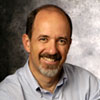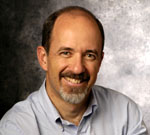SMU Anthropologist Voted Into National Academy Of Sciences
SMU archaeologist David Meltzer has been voted into the National Academy of Sciences for his achievements in research.

SMU Anthropology Department chair David Meltzer has been elected a member of the National Academy of Sciences (NAS) for his achievements in original scientific research. Membership in the NAS is one of the highest honors given to a scientist or engineer in the United States.
Meltzer, the Henderson-Morrison Professor of Prehistory in Dedman College and director of QUEST Archaeological Research Program, will be the third SMU professor to be inducted into the NAS – all of whom have come from the University’s highly regarded anthropology department.
 David Meltzer |
Meltzer was elected April 28 along with 71 other scientists, joining more than 2,000 active NAS members. More than 180 living Academy members have won Nobel Prizes. NAS members have included Albert Einstein, Robert Oppenheimer, Thomas Edison, Orville Wright, and Alexander Graham Bell.
“It’s really an honor to be in that wonderful company,” Meltzer said shortly after being notified of his selection by phone. “ I am thrilled, excited, shocked, humbled - it’s a great day.” He said he was particularly touched that the NAS members who voted him in then passed a cell phone around to offer their individual congratulations.
“David Meltzer serves as the model of a professor whose research contributes to his discipline and our understanding of civilization, and who uses that knowledge to enliven his classroom,” said SMU President R. Gerald Turner. “His election to the NAS brings much-deserved recognition to Dedman College of Humanities and Sciences and honor to SMU.”
“One of the hallmarks of top universities is the election of their faculty to the prestigious National Academy of Sciences,” said Paul Ludden, university provost and vice president for academic affairs. “SMU is so proud of its top-tier anthropology faculty member, David Meltzer, for his election today.”
Meltzer’s work centers on the origins, antiquity, and adaptations of the first Americans – Paleoindians – who colonized the North American continent at the end of the Ice Age. He focuses on how these hunter-gatherers met the challenges of moving across and adapting to the vast, ecologically diverse landscape of Late Glacial North America during a time of significant climate change.
Meltzer’s archaeology and history research has been supported by grants from the National Geographic Society, the National Science Foundation, The Potts and Sibley Foundation and the Smithsonian Institution. In 1996, he received a research endowment from Joseph and Ruth Cramer to establish the Quest Archaeological Research Program at SMU, which will support in perpetuity research on the earliest occupants of North America.
His research has appeared in more than 130 publications, and Meltzer has written or edited half a dozen books, including First People in a New World: Colonizing Ice Age Americans, recently published by The University of California Press. He received his Ph.D in anthropology/archaeology from the University of Washington in Seattle and joined the faculty at SMU in 1984.
Two emeritus faculty members in SMU’s Anthropology Department are also NAS members: Lewis Binford was elected to the NAS in 2001 and Fred Wendorf was elected in 1987. Only an Academy member may submit formal nominations to the NAS, and supporting nomination materials and candidate lists remain confidential. The evaluation process occurs throughout the year, culminating in a final ballot at the Academy's annual meeting in April.
The National Academy of Sciences is a private, nonprofit honorific society of distinguished scholars engaged in scientific and engineering research, dedicated to the furthering science and technology and to their use for the general welfare. Established in 1863, the National Academy of Sciences has served to "investigate, examine, experiment, and report upon any subject of science or art" whenever called upon to do so by any department of the government. More information and the full list of newly elected members are available at http://www.nasonline.org/site/PageServer.
# # #